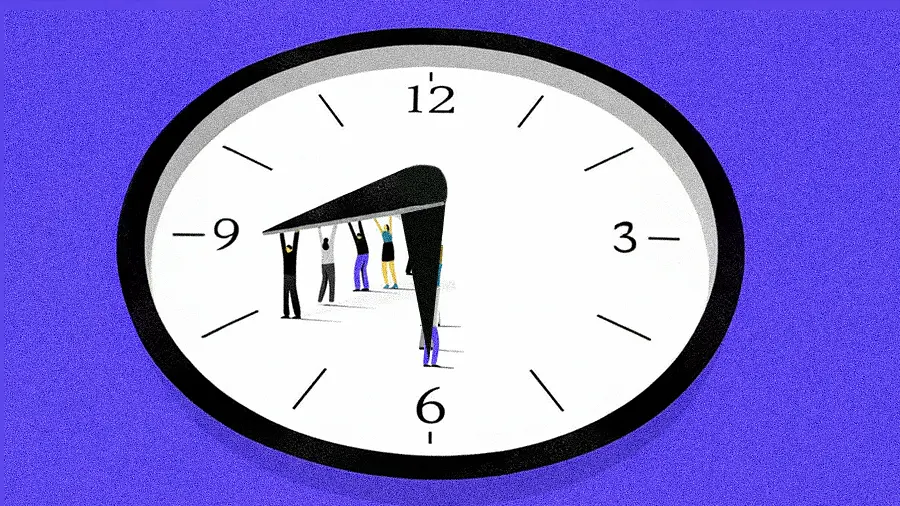HR leaders say it’s time to ditch the ‘helicopter parent’ model

Key Points
Bolt’s decision to replace HR with People Ops raises questions about the future of HR in companies and whether more companies will follow suit.
In light of the recent shift to cut HR teams, HR should reassess what changes need to be made.
Companies considering Bolt’s approach should evaluate their unique needs before making sweeping cuts to HR teams to avoid potential pitfalls.
I would really like it if HR could get back to being more of a partner—kind of like a spouse, where it’s equal in value, but different in roles.

Rachel Petersen
Talent Acquisition Manager
Aurumys
Equal partner or helicopter parent? Some see their HR departments as the group of people with their best interests at heart while others would hotly debate that HR’s dictating rules slow down progress. When tech company Bolt recently eliminated their HR function entirely in favor of People Ops, it begged the question: is it time to completely rethink HR’s perception and fix any lingering broken dynamics?
Rachel Petersen is the Talent Acquisition Manager at Aurumys, with deep HR experience across healthcare, real estate, and organizational leadership. For her, opening up the conversation is long overdue. She contends that HR has strayed from its core purpose, and a fundamental rethink of who HR is supposed to be is needed to restore its value.
Partner, not propaganda: Petersen believes HR’s role should be one of guidance and support, but too often it’s co-opted as what she calls the company’s “propaganda arm.” “I would really like it if HR could get back to being more of a partner—kind of like a spouse, where it’s equal in value, but different in roles,” she says. Instead of advising and advocating for employees, HR can sometimes be used to reinforce leadership’s messaging, even when it’s unrelated to day-to-day work. “That’s when it turns into this ‘helicopter parent’ dynamic, where HR tells you what to think, how to think it, and when to do what you’re supposed to do, even if you’re not doing anything wrong.” For Petersen, this is the root of most frustration with HR, where the function meant to offer support ends up eroding trust.
The Bolt debate: While some praised Bolt for breaking from HR norms, Petersen notes the move comes with risks. Since Bolt said they would move decision-making power to managers, she notes that many managers “want to do the right thing, they just don’t know what that is.” Trust between employees, managers, and employers becomes table stakes to make this move work. Should more companies follow Bolt’s example, she raises the question: “Does that manager trust that the People Ops person knows their stuff? And does the People Ops person trust the manager to do the right thing?” Without that mutual confidence, the partnership could be destined to fail.
Monday dread: Ultimately, this entire dynamic matters because of one foundational truth about retention. “The job can be less than stellar, but if the company actually cares about the person, they don’t want to leave,” she states, a point that cuts through complex HR theories and gets to the heart of what employees truly value. “Honestly, it’s pretty simple. Pay people well and treat them like humans. Your people can tell by your decision-making that you care.”
End of the company: Petersen warns companies against chasing trends without considering their unique context. What works for a tech startup may be a disaster for a large healthcare system with complex employee relations needs. “I think we see a lot of big companies that will look at Bolt and think, ‘Wow, we could save so much money. Let’s do that,'” she says. “If so, that might be the end of your company. So companies should consider carefully.”
Honestly, it's pretty simple. Pay people well and treat them like humans. Your people can tell by your decision-making that you care.

Rachel Petersen
Talent Acquisition Manager
Aurumys
Honestly, it's pretty simple. Pay people well and treat them like humans. Your people can tell by your decision-making that you care.

Rachel Petersen
Talent Acquisition Manager
Aurumys
Related articles
TL;DR
Bolt’s decision to replace HR with People Ops raises questions about the future of HR in companies and whether more companies will follow suit.
In light of the recent shift to cut HR teams, HR should reassess what changes need to be made.
Companies considering Bolt’s approach should evaluate their unique needs before making sweeping cuts to HR teams to avoid potential pitfalls.

Rachel Petersen
Aurumys
Talent Acquisition Manager

Talent Acquisition Manager
Equal partner or helicopter parent? Some see their HR departments as the group of people with their best interests at heart while others would hotly debate that HR’s dictating rules slow down progress. When tech company Bolt recently eliminated their HR function entirely in favor of People Ops, it begged the question: is it time to completely rethink HR’s perception and fix any lingering broken dynamics?
Rachel Petersen is the Talent Acquisition Manager at Aurumys, with deep HR experience across healthcare, real estate, and organizational leadership. For her, opening up the conversation is long overdue. She contends that HR has strayed from its core purpose, and a fundamental rethink of who HR is supposed to be is needed to restore its value.
Partner, not propaganda: Petersen believes HR’s role should be one of guidance and support, but too often it’s co-opted as what she calls the company’s “propaganda arm.” “I would really like it if HR could get back to being more of a partner—kind of like a spouse, where it’s equal in value, but different in roles,” she says. Instead of advising and advocating for employees, HR can sometimes be used to reinforce leadership’s messaging, even when it’s unrelated to day-to-day work. “That’s when it turns into this ‘helicopter parent’ dynamic, where HR tells you what to think, how to think it, and when to do what you’re supposed to do, even if you’re not doing anything wrong.” For Petersen, this is the root of most frustration with HR, where the function meant to offer support ends up eroding trust.
The Bolt debate: While some praised Bolt for breaking from HR norms, Petersen notes the move comes with risks. Since Bolt said they would move decision-making power to managers, she notes that many managers “want to do the right thing, they just don’t know what that is.” Trust between employees, managers, and employers becomes table stakes to make this move work. Should more companies follow Bolt’s example, she raises the question: “Does that manager trust that the People Ops person knows their stuff? And does the People Ops person trust the manager to do the right thing?” Without that mutual confidence, the partnership could be destined to fail.

Rachel Petersen
Aurumys
Talent Acquisition Manager

Talent Acquisition Manager
Monday dread: Ultimately, this entire dynamic matters because of one foundational truth about retention. “The job can be less than stellar, but if the company actually cares about the person, they don’t want to leave,” she states, a point that cuts through complex HR theories and gets to the heart of what employees truly value. “Honestly, it’s pretty simple. Pay people well and treat them like humans. Your people can tell by your decision-making that you care.”
End of the company: Petersen warns companies against chasing trends without considering their unique context. What works for a tech startup may be a disaster for a large healthcare system with complex employee relations needs. “I think we see a lot of big companies that will look at Bolt and think, ‘Wow, we could save so much money. Let’s do that,'” she says. “If so, that might be the end of your company. So companies should consider carefully.”




